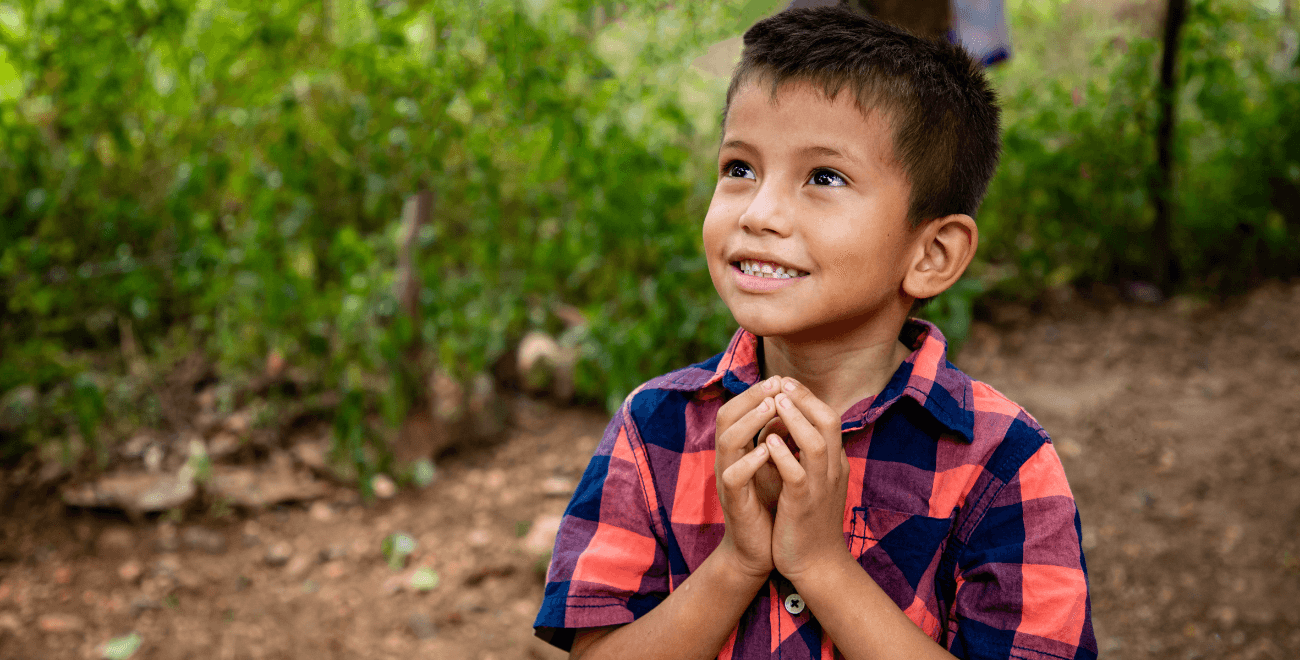Discover more
In Photos: Why Children are the Hidden Victims of this Pandemic
Meet eight-year-old Shaniz as she shares about living through COVID-19 in Mathare slum, Kenya.
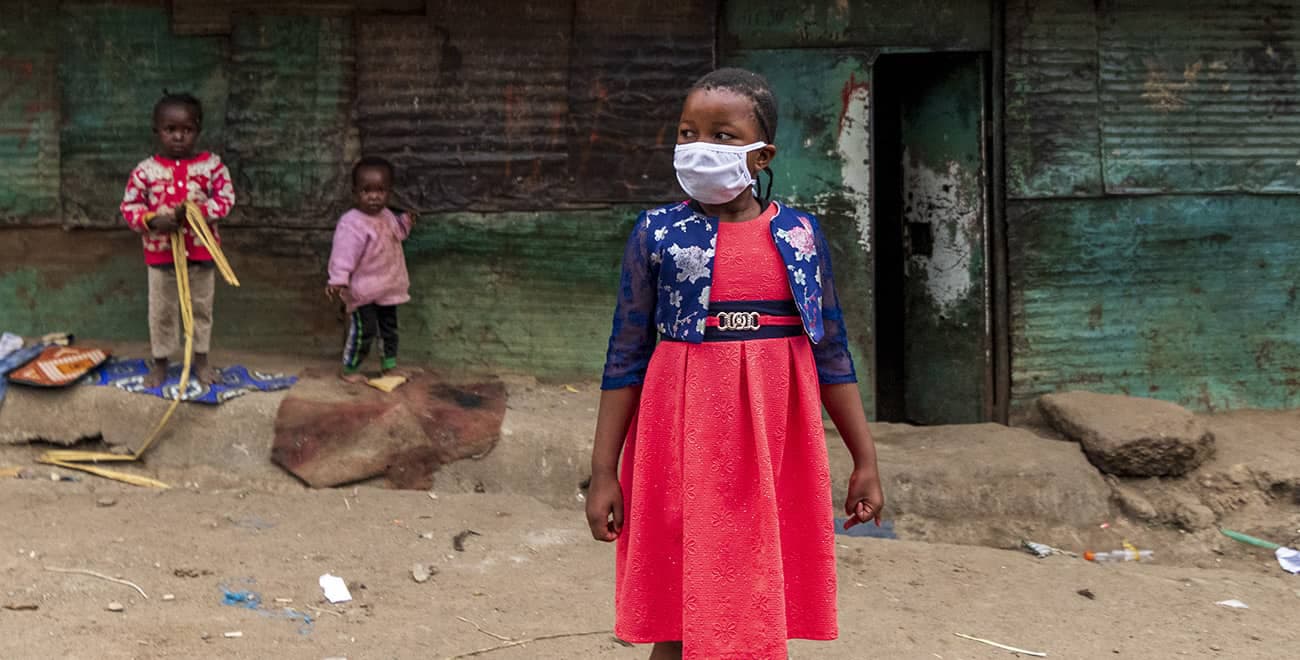
In Kenya’s Mathare slum, Shaniz reassures her teddy bear. “I know you love breakfast, but mama says dinner is more important now,” she says. “And we’ve done it before, so we’ll be okay.”
When we think of COVID-19, we think of stoic health workers on the frontline. Exhausted eyes, skin bruised, and faces raw from tight masks. We imagine pale, ventilator-covered faces, alone behind glass windows. We think of news headlines, statistics, politicians behind podiums, and spiralling economies.
We do not immediately think of young people. Yet, as the United Nations says, “children are not the face of this pandemic, but they risk being among its biggest victims”. The “catastrophic” impacts of COVID-19 extend beyond physical health to every aspect of a child’s life: plunging them into poverty, leaving learners behind, and threatening their safety.
It is children living in poverty—the hidden face of this pandemic—who will be the hardest hit.
As Compassion UK CEO, Justin Dowds, shares, “as we navigate this pandemic, equipping local churches to care for children in poverty has never been more relevant or significant.”
Children are being pushed further into poverty
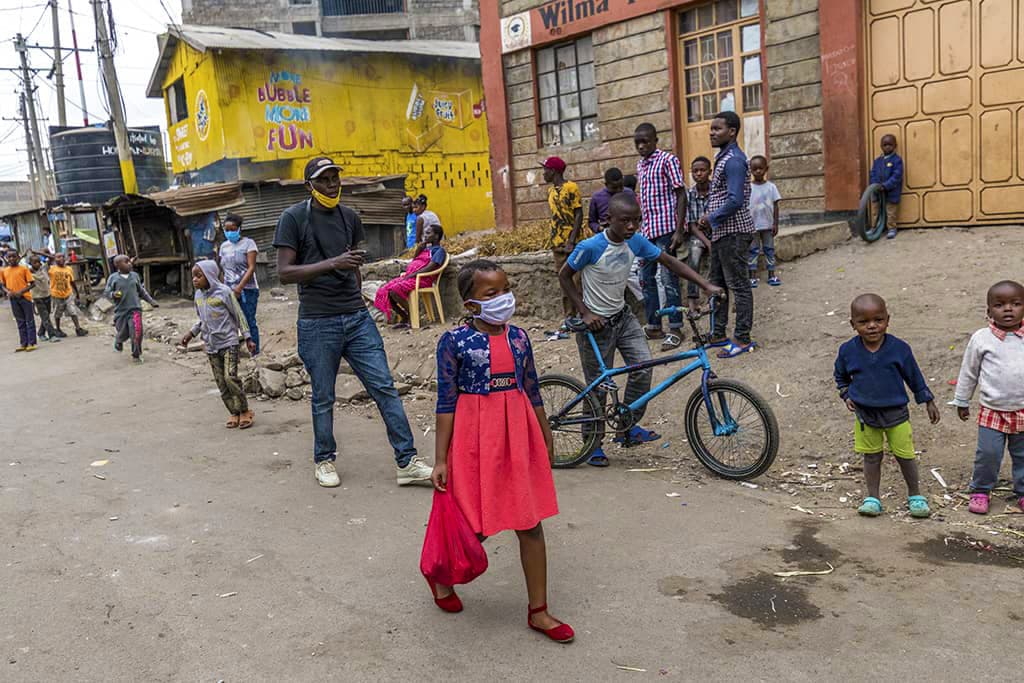
Eight-year-old Shaniz lives in ‘Kosovo’, a district so squalid and dangerous it was named for the war-torn, poverty-ravaged European state. Since COVID-19 hit, her family has been balancing on a knife’s edge; a delicate, terrifying dance between surviving and the dangerous freefall into deeper poverty.

“Coronavirus is like a leopard,” says Shaniz. “It is very dangerous. It knows how to stalk its prey and can cause serious injuries or even death.”

The physical distancing and quarantine measures adopted to curtail the virus’s spread have decimated the livelihoods of millions of households with children. Shaniz’s mother, Anne, works casually in a shop at the markets. Since her husband passed away six years ago, her teenage children Veronica and Kelvin and youngest Shaniz have depended upon her sole daily income. When Mathare was placed under quarantine restrictions, the single mother could not work—which meant her children could not eat.
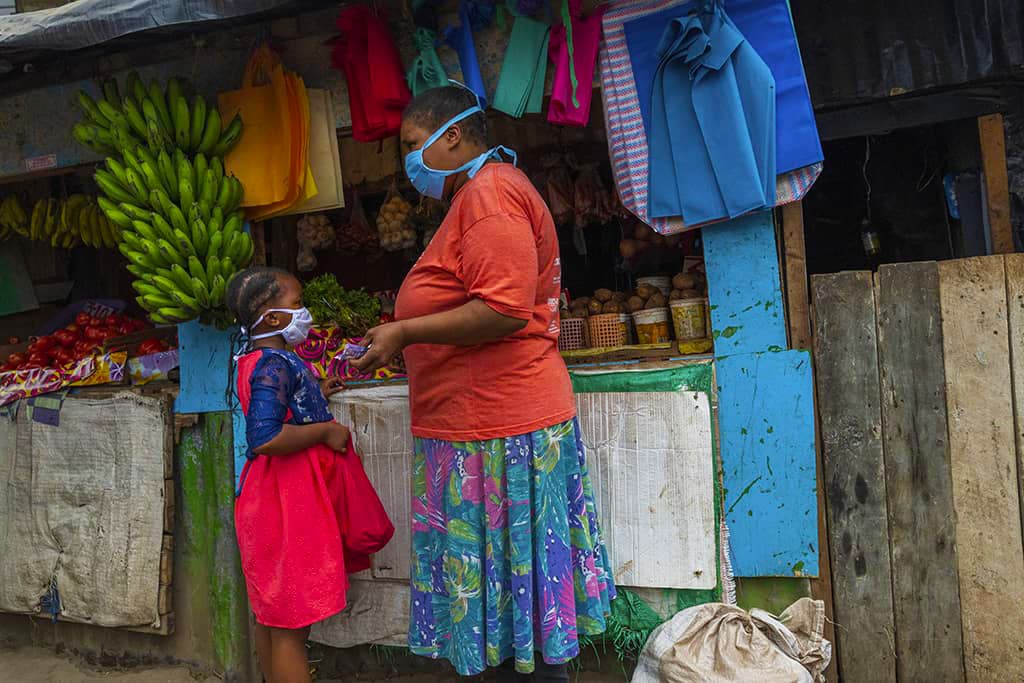
“I had to borrow food and money for rent, leaving me in debt,” says Anne. “The uncertainty of where the next meal is going to come from, when the next rent payment is due, takes a mental toll on me. I live in constant fear.”
Experts predict that a global recession could push an additional 42-66 million children into extreme poverty this year. The numbers are so huge, so overwhelming, that it’s hard to make sense of them. Instead, picture Shaniz, bravely comforting her teddy as she endures a situation no child should have to face.
Today, her mother has returned to work but it’s a decision she wrestles with. “I do not have the luxury of working from home,” says Anne. “I have heard of people who can work from home. If I don’t physically appear at work, I am not paid. It’s that simple.”
My biggest fear is being unable to provide for my children in this critical time. I use public transport and that also gets me worried. What if I contract the disease and then bring it back? But if I decide not to work, there is another calamity looming. It is a choice I must contend with every day.
The new child health crisis
Children like Shaniz are generally spared the worst health impacts of the virus, but the broader effects of the pandemic could reverse years of global child health progress. The United Nations reports that the economic hardship experienced by families could result in hundreds of thousands of additional child deaths in 2020.
Reduced household income will force families in poverty to cut back on essential health and food expenditures. Three meals a day becomes two, or even just one. “Some families don’t have enough money to buy vegetables,” says Madai, a Compassion project director in El Salvador. “They usually eat one meal a day or just give their children a snack to eat because it is cheaper.”
This rising malnutrition could have lifelong consequences. Immune systems weakened from lack of nutrients are prone to more infections, which in turn leads to worse nutrition—a vicious cycle. Undernourishment can also impair speech, coordination, and memory.
In Peru, when the pandemic struck, two-year-old Genesis was already on the verge of severe malnutrition.
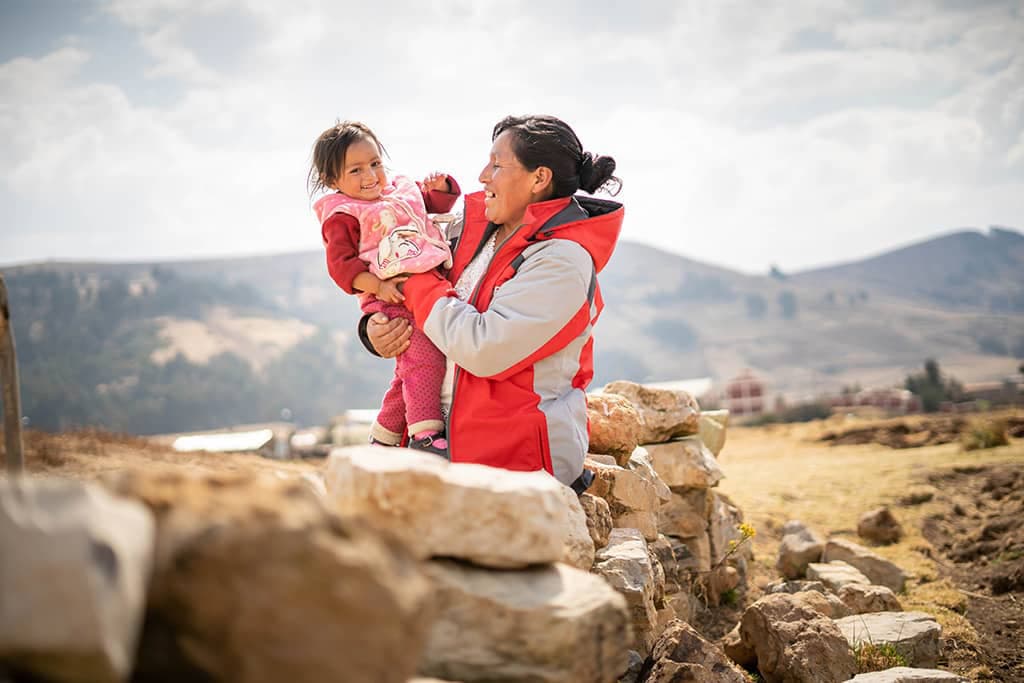
“My daughter was very skinny and I didn’t know what to do. We took her to the local health centre but whatever they gave us did not work. I asked God to help me with this,” shares her mum, Ana Caso.
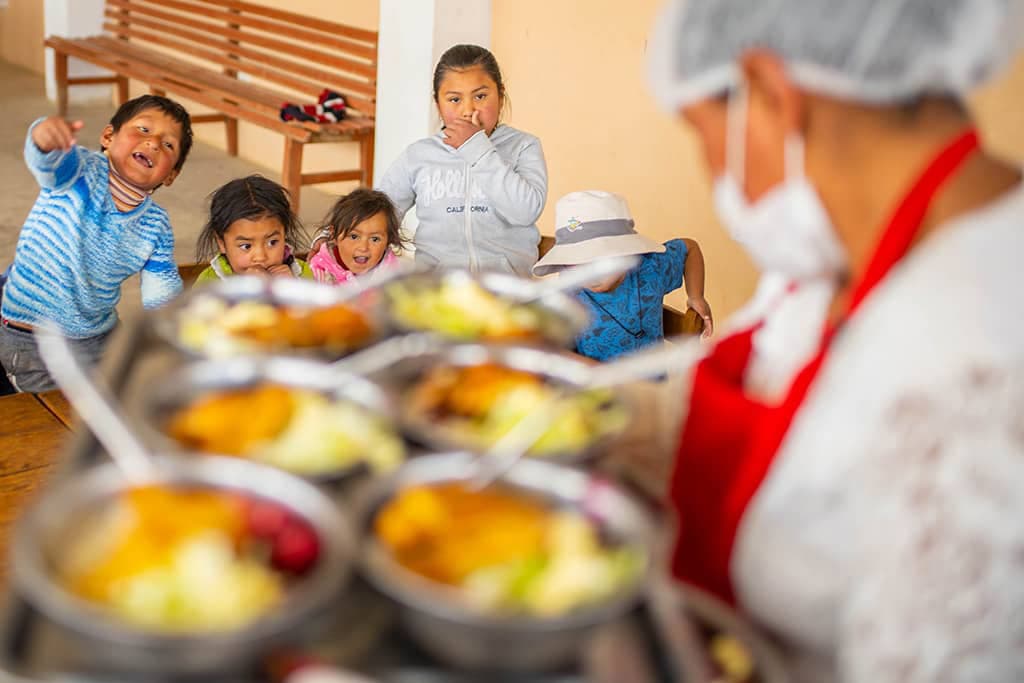
If the local church-driven project, had not been there to support the family, COVID-19 would have left them in crisis.
Compassion has helped us to learn more about health and hygiene. We are learning how important it is now at this time. The children are able to eat well and my daughter Genesis came out of anaemia thanks to the church.
Compassion’s Head of Global Programme, Sidney Muisyo, has also been reflecting on another alarming trend being reported by our church partners. “We are seeing the uptake of childhood vaccinations not happening as normal because people are afraid to go to the hospitals,” he shares.
“And sometimes lockdowns and curfews have been hindering the ability to get to hospitals. So we are watching this very carefully. We are concerned about the question of malaria and other vaccinations. We’re going to have to pay very close attention and play catch up.”
The learners left behind
Back in Kenya, Shaniz has been out of the classroom since March. Across the country, schools will not open until January 2021—10 months later. “The 2020 school calendar year will be considered lost due to COVID-19 restrictions,” said Kenya’s Education Minister George Magoha.
Almost every country in the world has imposed school closures since the pandemic began, affecting 1.5 billion children and youth. While two-thirds have introduced national distance learning platforms, broadcast over the radio, television, or the internet, only 30 percent of low-income countries have done so. But even in countries where distance learning is available, there are children left behind.
Shaniz’s 15-year-old brother Kelvin has been teaching her at home, she says, “which is nice”. But she worries about having to repeat the school year, a fear shared by her mother.

“Shaniz being out of school for the remainder of the year means she will fall behind in her education. Children from more affluent schools are currently engaging in online learning but for us here in the slum, that is simply a luxury that I cannot afford,” says Anne.
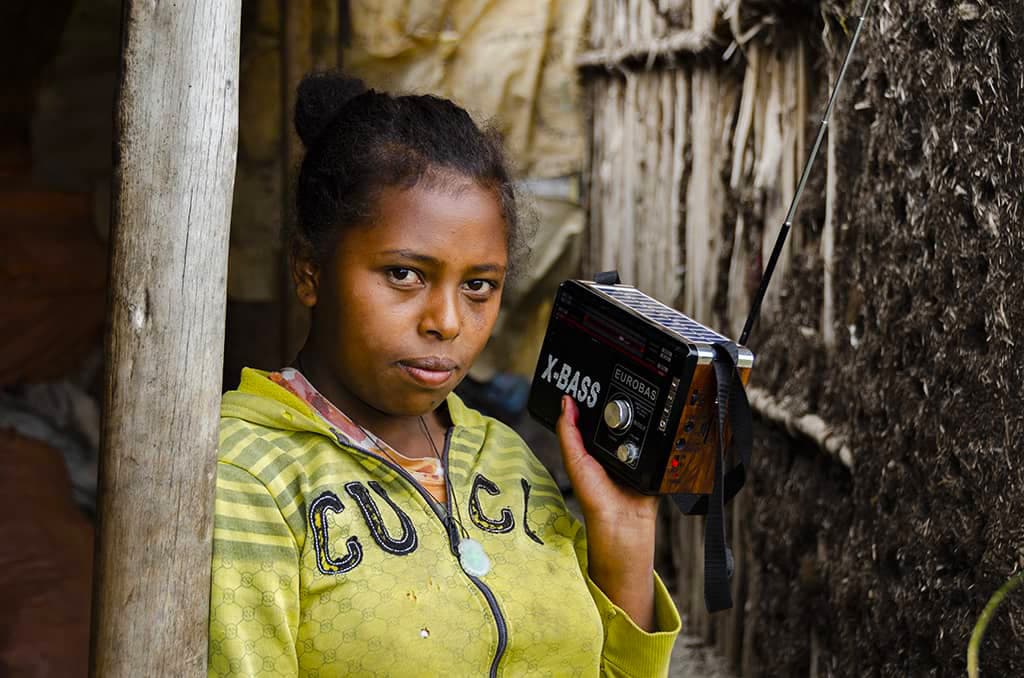
In Ethiopia, 17-year-old Kidist remembers staring blankly at a list of radio stations transmitting school lessons. She didn’t know the government had been broadcasting classes. The news had been announced over the radio and television—and her family didn’t own either.
“I asked my mother to buy a radio, even knowing we were struggling for our daily food since she wasn’t working anymore [due to the pandemic],” she said. “I wasn’t meaning to burden her but wanted to try my chances, just in case. The only gateway for us out of poverty is our education. If that is compromised, then our dream also vanishes.”
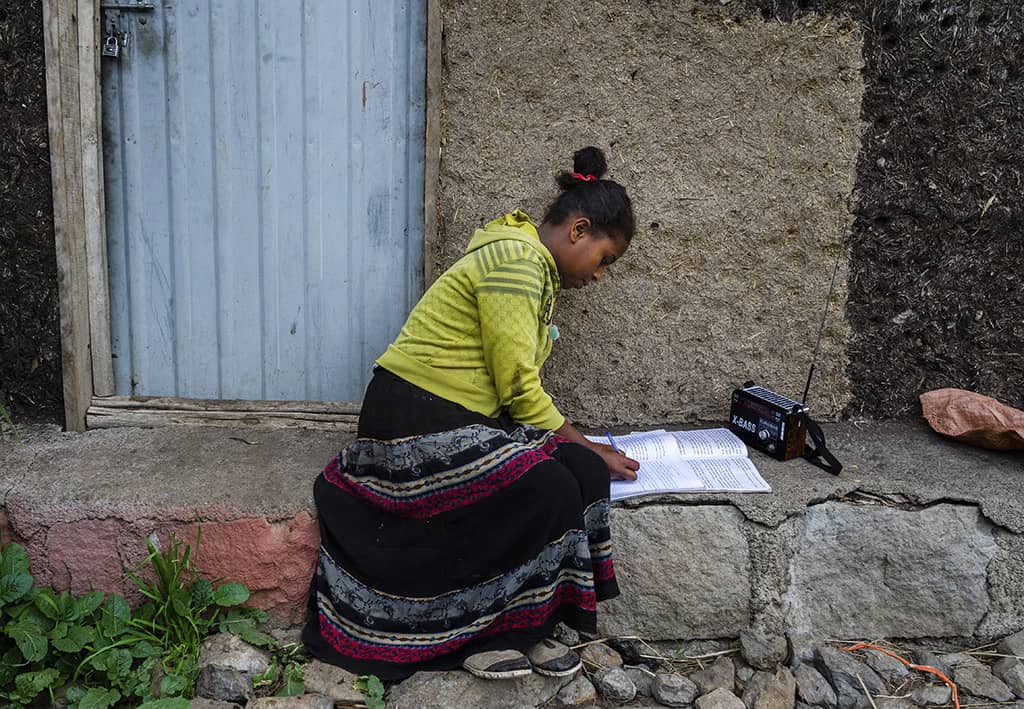
When Compassion’s church partner discovered she was missing out, they gifted Kidist with a shiny new radio. “When I brought the radio home from the project, my mother was as excited as I was,” she said. “I felt like there was nothing the church wouldn’t do to help me realise my dream.”
Shaniz and Kidist are the lucky ones: amid their challenges, they have support to continue learning. The United Nations says the losses will be greatest for children who, triggered by the pandemic, are forced to drop out of school altogether. But for a cheap radio or a borrowed internet connection, it would have been all too easy for children like these to slip through the cracks.
Increased risks to child safety
Sadly, the number of online sexual exploitation of children (OSEC) cases have skyrocketed. In the Philippines — the epicentre or the global cybersex trafficking trade— have tripled within the last three years, largely a result of COVID-19 restrictions, and the increasing effects of food insecurity and rising poverty.
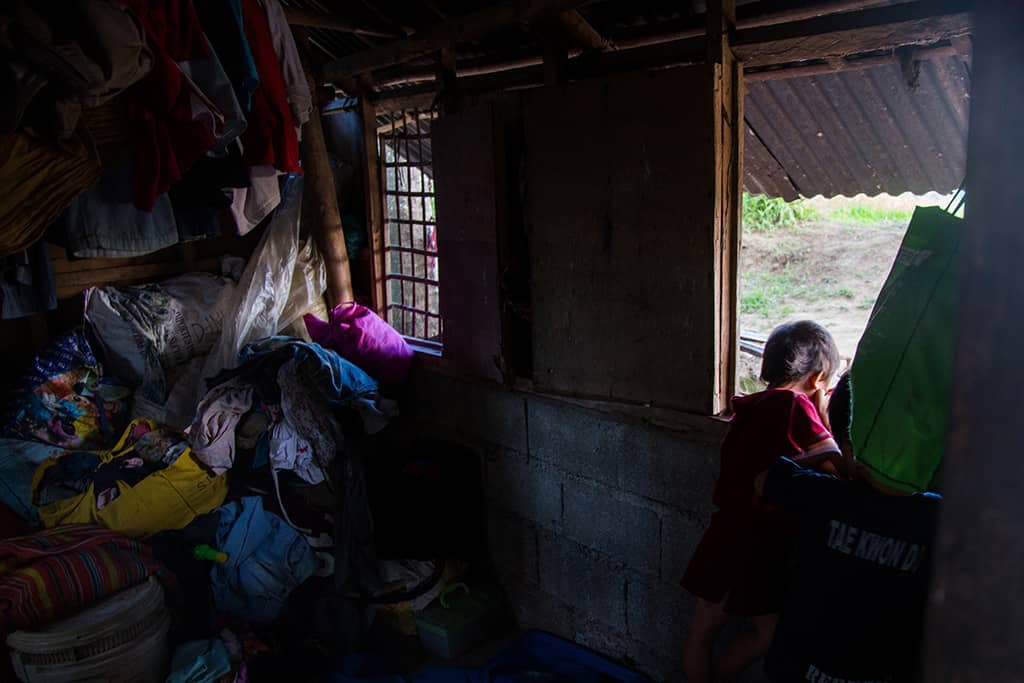
These numbers are not just statistics: each represents a child enduring horror. While every child is at risk, it is the poorest who are the most vulnerable. “The same group that we are ministering to—children in poverty—is the same group that is being targeted by the perpetrators of online sexual exploitation of children, because they are poor and desperate,” says Compassion Philippines National Director Noel Pabiona.
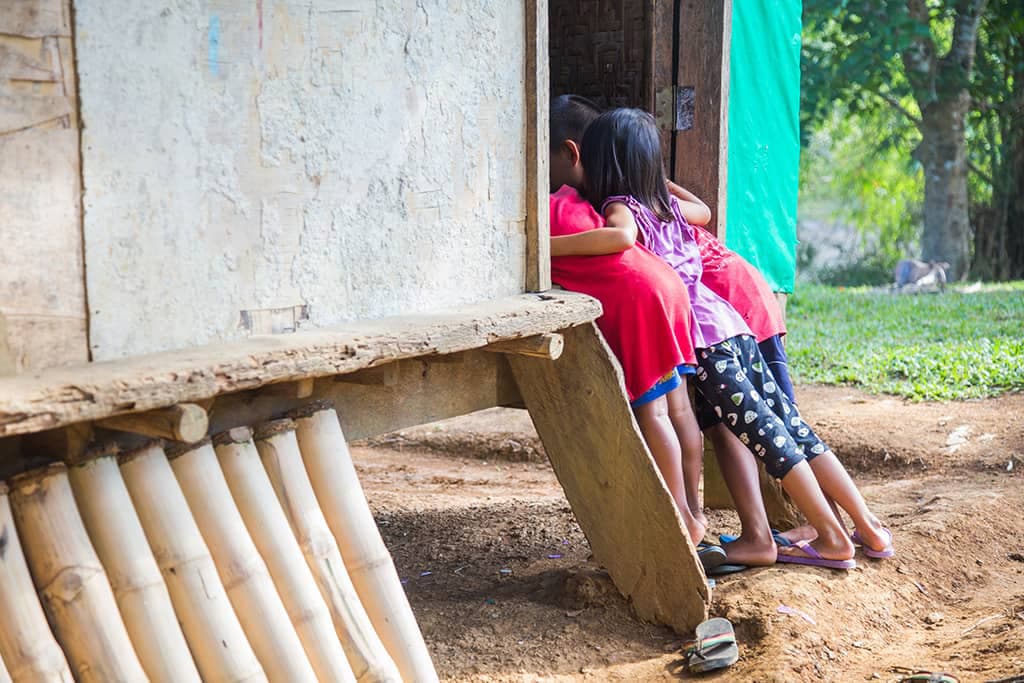
Compassion Philippines has partnered with IJM and World Vision to fight the online sexual exploitation of children. Shortly after the quarantine restrictions were announced in March 2020, they launched an online child protection awareness campaign for their church partners featuring local experts.
“Our programmes and initiatives in Compassion are always mindful of protecting children,” says Mary Ann, a child protection specialist for Compassion Philippines. “The dangers are real, but what we do to protect the children is real, too.”
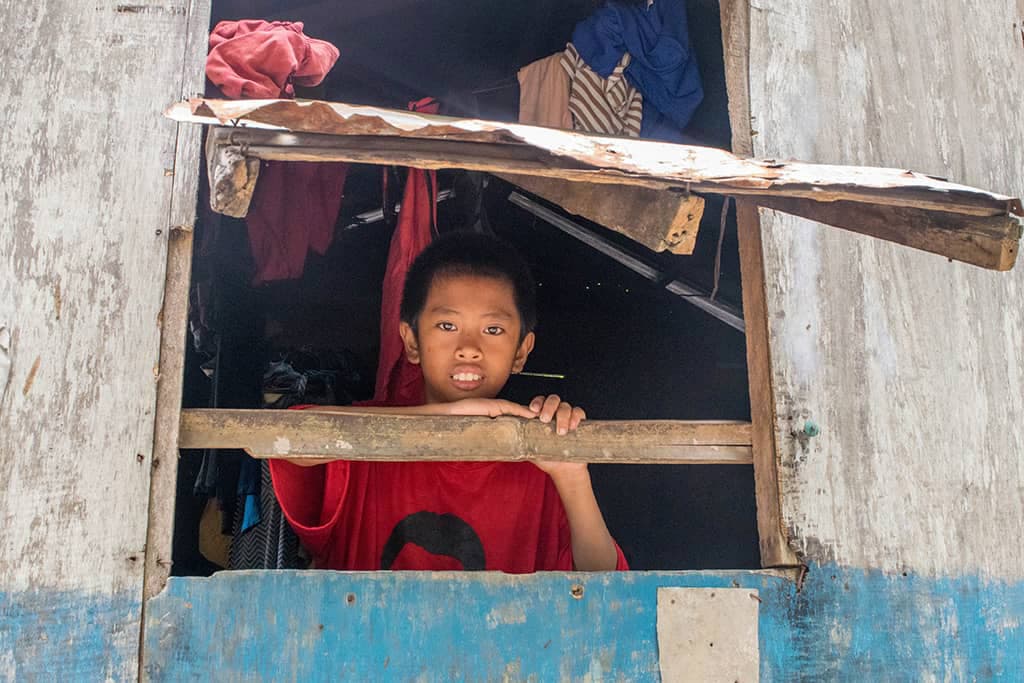
Mary and her team’s tireless efforts are protecting children like 14-year Alvin. “I miss going to the [Compassion] student centre and playing with my friends,” reflects Avin. “Thank you to my sponsor and my big brothers and big sisters [the staff] in the student centre for your continuous care for us even though we can’t go there for now. God bless you.”
We will be brave
Back in the Mathare slum, Shaniz reflects that “the project has given us masks, food, and taught us about hygiene and how to keep ourselves safe and healthy,” says Shaniz.
In the bustling streets outside her window in Kosovo, Mathare, life appears to continue as normal. “People in Mathare live like COVID-19 is a rumour,” says Anne as she prepares to leave for work. “God is teaching me to be wholly dependent on him. I tell my kids to do their best, hygiene-wise, but to leave the rest to God,” she says, pulling on a face mask.
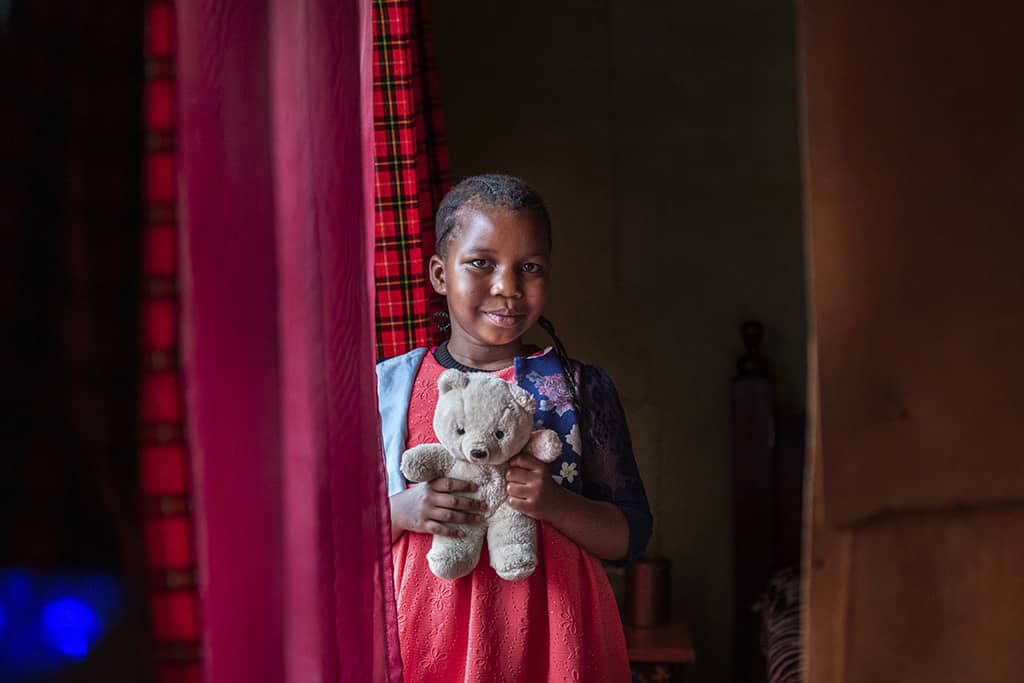
Shaniz watches on, clutching her teddy.
“I miss how things used to be. Sometimes Mama is very worried, not her happy and chatty self. I think that she is afraid of many things, getting sick, losing her job, and our safety when she is away,” says Shaniz. “God is bigger than coronavirus. We will be brave.”
The harrowing situation facing children:
An estimated 42-66 million children could fall into extreme poverty as a result of the pandemic.
Just 30% of low-income countries have introduced a national distance learning platform.
Even before the pandemic, one-third of young people were digitally excluded.
Economic hardship as a result of the pandemic could reverse the last 2-3 years of progress in reducing infant mortality within a single year.
60 percent of children worldwide live in countries where a full or partial lockdown is in place.
*Statistics taken from the United Nations Policy Brief: The Impact of COVID-19 on Children, 15 April 2020
How Compassion’s church partners are at work:
Providing urgent food relief and long-term solutions to families suffering hunger
Protecting children through regular phone calls and home visits, if possible
Supporting children with access to medical care
Assisting with direct money transfers where direct aid distribution is not possible
Words by
Compassion International, Zoe Noakes
Share:
Share:
Pray with us
Join thousands of people praying to end poverty, take action through our appeals and activities, and be inspired by how God is changing lives.
Get a little Compassion in your inbox with our Prayer and Stories email.
Remember, you can unsubscribe at any time. Please see our Privacy Policy for more information.
